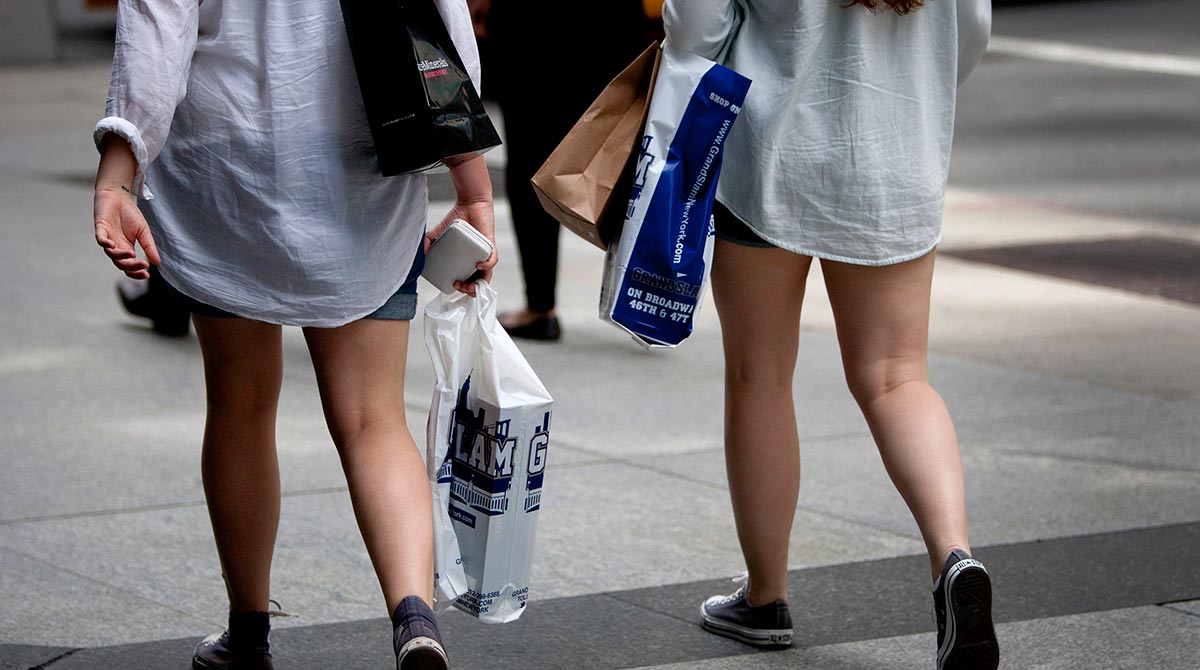Consumer Sentiment Edges Down Amid Economic Concerns

Consumer confidence in the United States dipped slightly in March as concerns persisted that the world’s largest economy will cool.
The University of Michigan final sentiment index for last month eased to 91 from 91.7 in February. The median projection in a Bloomberg survey of economists called for a reading of 90.5.
The gauge was up from a preliminary reading of 90 as Americans grew more upbeat about their finances, offsetting less favorable views in economic growth.
Consumers’ views on the outlook for the economy deteriorated as prices at the pump climbed and wage gains remained modest. Continued improvement in the labor market will be needed to reassure consumers, whose spending is the primary driver of economic growth.
“We saw some fairly rapid increases in gasoline prices over the course of late February to the end March,” Terry Sheehan, an economic analyst at Stone & McCarthy in Princeton, New Jersey, said before the report was released. “Changes in gas prices always make consumers uncomfortable. It’s kind of a wake-up call to consumers that those exceptionally low prices aren’t going to be holding on forever.”
Estimates for the Michigan survey in the Bloomberg survey of 53 economists ranged from 89 to 92.
The sentiment survey’s current conditions index fell to 105.6 in March from 106.8 the prior month. The measure of expectations six months from now decreased to 81.5 from 81.9.
Americans anticipated an inflation rate of 2.7% in the next year, up from 2.5% in the first two months of the year. They also expect prices to rise 2.7% over the next five to 10 years, compared with 2.5% the previous month, which matched the lowest level since the late 1970s.
“While rising gas prices were the primary cause of an uptick in inflation expectations, it had no impact on consumers’ inflation-adjusted income expectations, which remained at the highest level since 2007,” Richard Curtin, director of the Michigan survey, said in a statement.
The average price of a gallon of regular gasoline reached $2 in March, from a seven-year low of $1.69 the prior month, according to the auto group AAA.
The April 1 figures corroborate the weekly Bloomberg Consumer Comfort Index, which showed household attitudes softened in March on concerns about the economy and financial prospects.
The report showed 38% of respondents said their incomes had recently increased, the second-highest reading since 2005. Over the past three months, consumers were more optimistic about their finances since the end of 2006.
An improving labor market is helping to underpin sentiment. Employment climbed and wages picked up in March, figures from the Labor Department showed April 1.
The 215,000 gain in payrolls followed a revised 245,000 February advance. Average hourly earnings increased 0.3% from a month earlier, while the jobless rate crept up to 5% as more people entered the workforce.



